

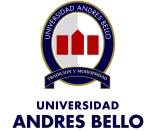
Theme
10BB Simulation 2
INSTITUTION
Andres Bello University - School of Medicine - Viña del Mar - Chile

Clinical simulation has proven to be a significant and objective tool for improving competences in medical students.
At Universidad Andrés Bello School of Medicine, simulation has been incorporated into student training, through various undergraduate courses.
19 medical graduates answered the survey. 89% currently work in an emergency room and had faced life-threatening emergency situations.
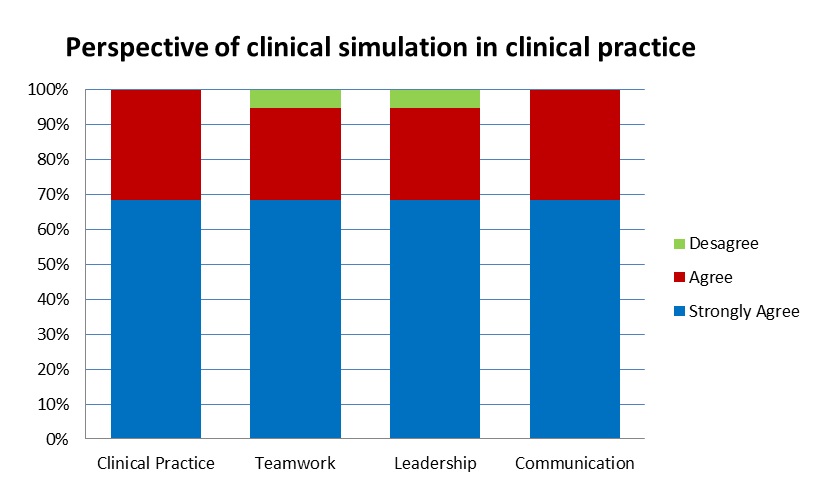
68% strongly agreed that clinical simulation, teamwork, leadership and communication skills acquired contributed positively in their professional clinical practice. The remaining 26% agreed. Only one indifferent results observed.
89% strongly agree that structured debriefing is fundamental to learn from mistakes. 42% think that should be more number of training.
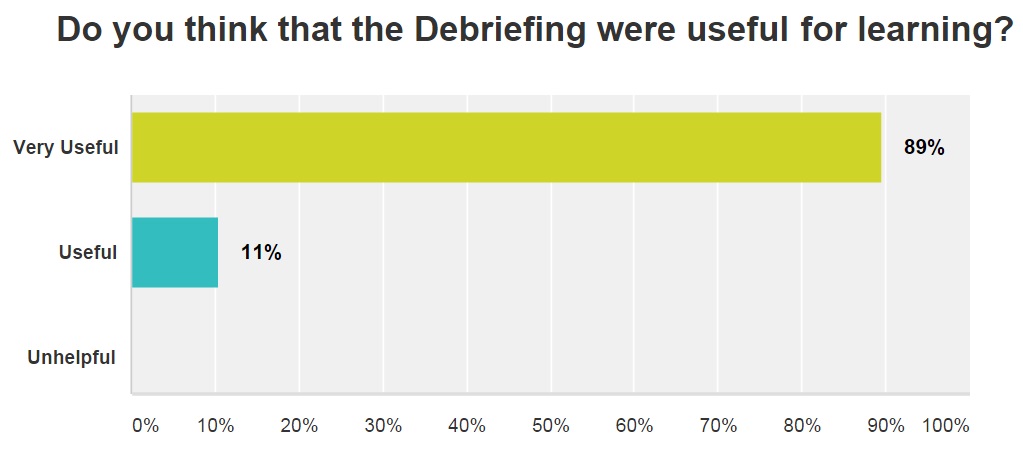
Objective: Evaluate the impact of clinical simulation in the professional development of medical graduates one year post graduation.
21 graduates from 2013, previously trained in clínical simulation to respond to medical emergencies, were invited to participate in a self-administered, anonymous survey, formulated and validated by expert judgment within our University, which aimed to measuring the degree of contribution of clinical simulation in various areas of professional practice.
Survey questions included: Working in an emergency service, confronting life-threatening situations, perception of the degree of contribution of simulation for current clinical practice, communication skills, teamwork, leadership and the importance of structured debriefing after each stage, among others.
After a year, medical graduates declare that training through clinical simulation is essential for professional clinical practice. Communication, leadership and Teamwork were best evaluated.
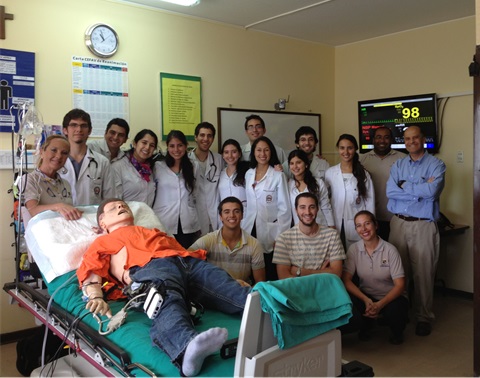
Improve communication with medical graduates. Perform more simulation scenarios during internships.
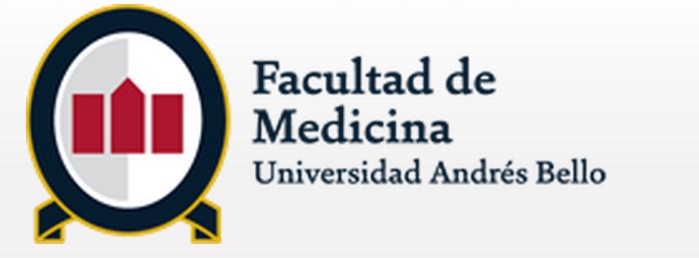
 Send Email
Send Email